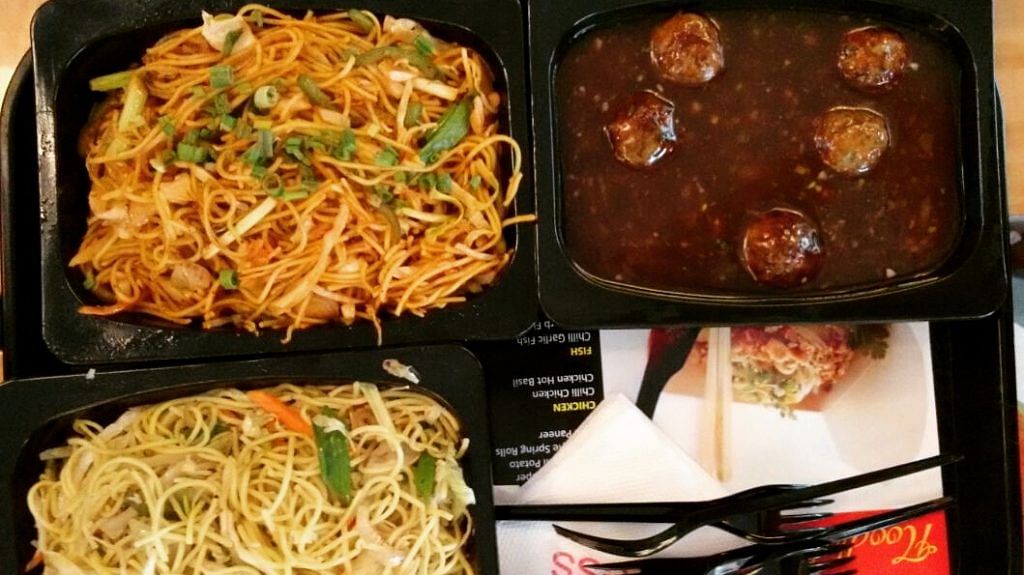Anti-China protests and calls to boycott Chinese products are well underway across India after news broke out of the death of 20 Indian soldiers in the India-China standoff in Galwan.
Not to be missed out, Union Minister Ramdas Athawale called for a ban on Chinese food Thursday. And it led to memes, jokes, and some outrage over jingoism on social media.
When the coronavirus outbreak began, one of the first things people in India did was stop going to Chinese restaurants. Now with the tensions at the Line of Actual Control, Chinese food is back in the limelight.
Restaurants selling Chinese food should be banned. I appeal to people to boycott Chinese food: Union Minister Ramdas Athawale pic.twitter.com/PoY0Udfule
— ANI (@ANI) June 18, 2020
But when it comes to food, the issue is more complicated than just throwing Chinese TVs off the balcony and hitting it with sticks. What Athawale, and most Indians, refer to as ‘Chinese food’ is actually ‘Chindian’ food.
Also read: Breaking TV sets to boycotting Chinese goods — India’s RWAs wage ‘war’ against Xi’s China
A brief history of desi-Chinese cuisine
Yang Tai Chow was the first recorded Chinese man to migrate to India for better prospects, and in 1778, chose erstwhile Calcutta as his home. Soon many more Hakka Chinese immigrants settled in India, and the capital of British India at the time became home to ‘Chinatown’. They went on to modify their cuisine so it suited the Indian palette — changing ingredients, adding sauces, and local produce. This is how the Sino-indian cuisine was born, and the rest, as they say, is culinary history.
While Manchurian, be it gobi or chicken, is the high-point of Chinese food for most Indians, no one in China even knows about the existence of such a dish. It is actually a ‘Made in India’ dish.
And how can we forget our other neighbour Nepal, whose Parliament recently approved a new map that stakes claim on Indian territories.
The country happens to be the birthplace of one of the most loved street food in India — the legendary momos. But apart from being savoured by most Indians, ‘momo’ has also been used as a racist slur against people from the Northeast.
‘Mome’ in the Nepali language means to steam, and was originally part of the Newari cuisine of the Kathmandu valley. Most Indians still don’t know that momos are actually part of Nepali cuisine, and happily club it with Chinese food, and sometimes even confuse it to be part of northeast India’s cuisine.
Also read: Ladakh conflict does little to hurt sales of Chinese phones in India
Pulwama and Karachi Bakery
Food has always been political in India. After last year’s Pulwama attack in Jammu and Kashmir, which claimed the lives of 40 CRPF jawans, protests erupted outside a Bengaluru outlet of Hyderabad-based Karachi Bakery.
Protesters demanded the bakery change its name due to its connection with Pakistan. The Indiranagar outlet was even forced to cover the name ‘Karachi’ on its signboard, and put up an Indian flag to compensate for ‘hurting sentiments’.
The management of Karachi Bakery had to eventually put out a statement explicitly stating they were “absolutely Indian”, in light of several of its outlets also receiving threatening calls.
#KarachiBakery pic.twitter.com/S5KHB7Nm0b
— Karachi Bakery (@KarachiBakery) February 23, 2019
Indians must realise that the origins of most food we feel is inseparable from our culture is actually an import from various parts of the world.
‘Indian’ staple sweets like gulab jamun and jalebi are imports from Persia and Middle East respectively. Dal-chawal or dal-bhat is a combination associated with Nepal.
We probably cannot even distinguish between Thai and Chinese food, despite the cultural, geographical, socio-political differences between the two countries. Even Tibetan food is Chinese for most Indians.
So, are we looking to ban authentic Chinese food, or desi Chinese? My guess is that China would not be so miffed about India banning ‘Chinese’ dishes it doesn’t even know existed — like chilli chicken or gobi Manchurian. Besides, is banning certain kinds of food really the way to show patriotism and respect towards the 20 soldiers who lost their lives?
Views are personal.
Also read: India-China clashes add new layer of uncertainty for businesses already hit by coronavirus
